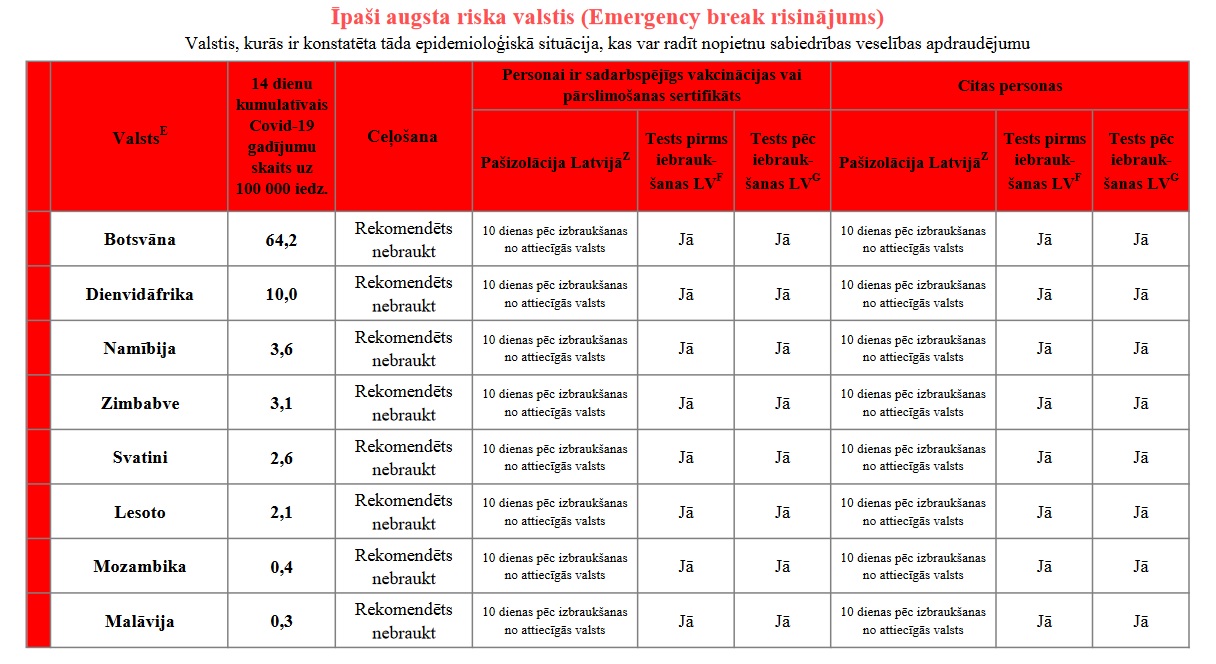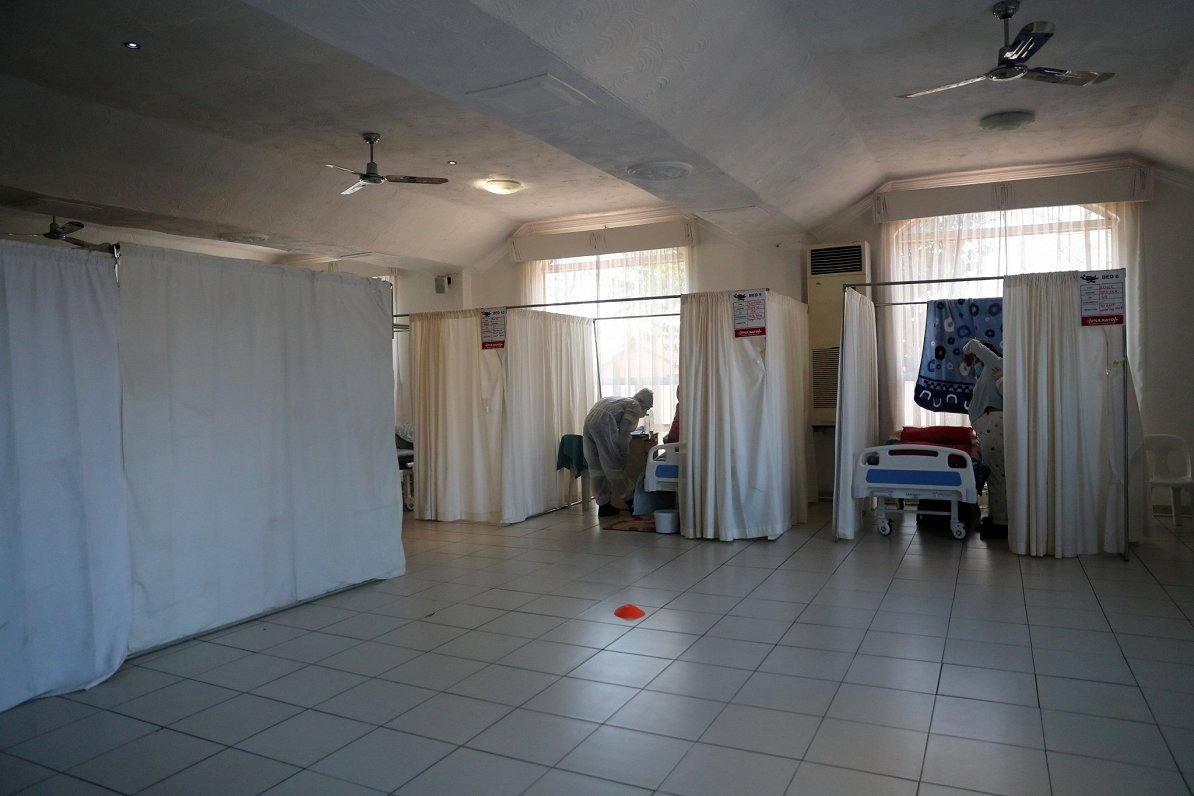⛔️⛔️⛔️Lēmums par ceļošanas ierobežojumiem būs drīzumā. Tikmēr jau tagad ļoti lūdzu tos, kuri bija plānojuši ceļojumu/darba braucienu uz Dienvidāfriku, Zimbabvi, Namībiju, Esvatīni, Lesoto, Botsvānu, Mozambiku, tos atcelt https://t.co/Qvd7I0KduS
— Edgars Rinkēvičs (@edgarsrinkevics) November 26, 2021
"A decision on travel restrictions will be made soon. In the meantime, I am already asking those who had planned a trip / business trip to South Africa, Zimbabwe, Namibia, Eswatini [still often known as Swaziland in the English-speaking world], Lesotho, Botswana, Mozambique to cancel them," he wrote on social media in response to a tweet from Health Minister Daniels Pavļuts, who noted concerns about the mutated B.1.1.529 variant.
Shortly afterwards the Foreign Ministry issued an official alert confirming the travel advice, saying: "In connection with the discovery of a new, potentially dangerous strain of the Covid-19 virus that has spread to several countries in southern Africa, the Foreign Ministry strongly warns travelers not to visit Africa, especially South Africa, Botswana, Lesotho, Mozambique, Namibia, Eswatini and Zimbabwe".
Though currently only a small number of cases of the new variant have been recorded, there are fears that its large number of mutations may allow it to evade some of the protections offered by vaccines, and it is also potentially highly transmissible, though research into it is ongoing. The World Health Organization made it an official 'Variant of Concern' at a meeting Friday and dubbed it 'Omicron'.
Later on Friday, Rinkēvičs confirmed the restrictions on entry from eight sub-Saharan African countries, with Malawi added to the previously-mentioned seven.
❌#Latvia bans entry from
— Edgars Rinkēvičs (@edgarsrinkevics) November 26, 2021
South Africa, Mozambique, Lesotho, Eswatini, Botswana, Namibia, Zimbabwe, Malawi. Latvian nationals\residents who visited these countries in the last 10 days must present negative PCR test on arrival, repeat it in 24h, self-isolate in hotel for 10 days





























